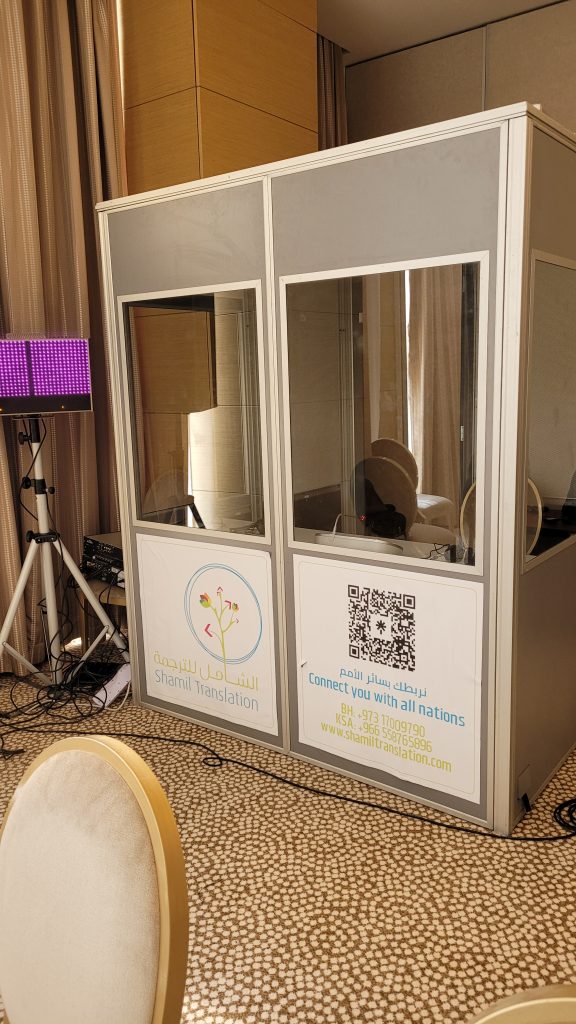


Interpretation, also known as simultaneous translation, is one of the distinctive and important types of translation. Interpretation is defined as the translation of speech between two speakers who speak two different languages directly and simultaneously. Interpretation allows people to communicate in a flexible and easy way, as one person hears the speech and translates it directly to the other person, and in this way the speakers can communicate at real time.
Simultaneous interpretations are utilized in many events and places, most of which revolves around speeches and seminars addressed to the masses, and interviews between people, whether direct or indirect, and whether these seminars, speeches, and interviews are in the same place or through broadcast and Internet means. Some examples include:
There are many international conferences that are attended by people of many nationalities, and these people can be speakers of several languages. Here comes our role as interpreters in which we serve to translate the speech held during the conference into the required language. For example, we often see conferences in which the attendees wear headphones; These headphones are the medium by which the verbal translation is transmitted to the audience. Nevertheless, this doesn’t limit interpretation to conferences only, as it is also used in meetings, international forums, and many other social events.
When an event is being broadcast live, for example (the United Nations sessions), some media take the initiative to assign an interpreter to do the simultaneous translation of all speeches during such broadcast session.
Many foreign tourists bring a translator with them, whenever they come to Arab countries, where the conversations they engage in, whether at the airport, restaurant, or otherwise, are communicated through a consecutive translation process in which the translator is the mediator between the tourist and the other party.
One of the essential skills that an interpreter must possess is a rich vocabulary. This is because 95% of the interpretation process depends on the terminology memorized by the translator. The translator also needs to be quick-witted and able to quickly understand texts and choose the right words for translation. Also, among such important skills, the translator should be aware of the nature of the event he is interpreting. For example, in media translation, the researcher must have a background on how montage editors deal with the interpretation. Likewise, the translator must be truthful in his transmission of the content he is translating. One other skill is the ability to distinguish the contents to be translated. For example, if the translation is to be done for a scientific conference. The translator must have an understanding of the basic scientific terms that he is expected to come across at such a conference. There are also many other different skills recommended to have such as voiceover, pacing, and tone.



